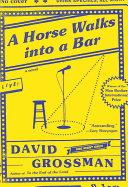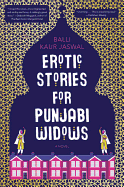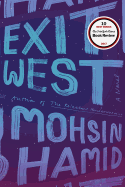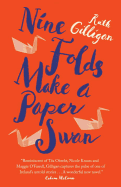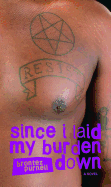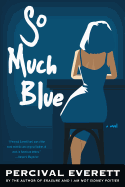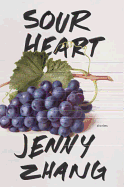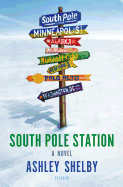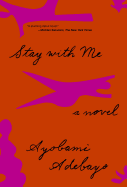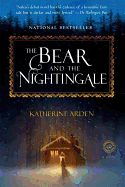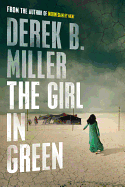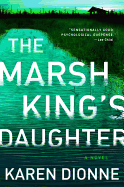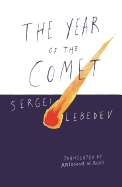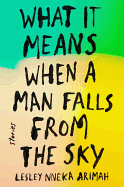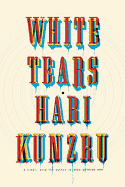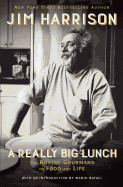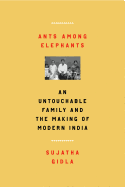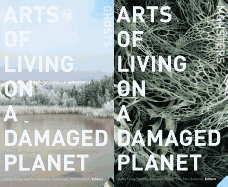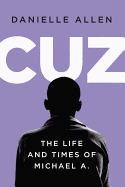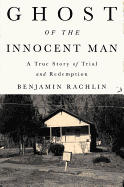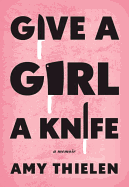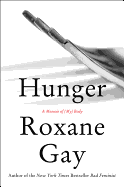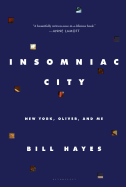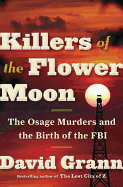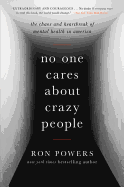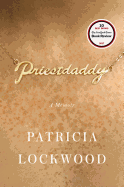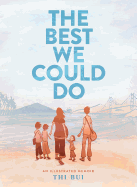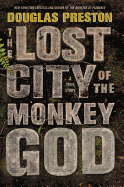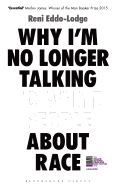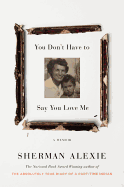Our 2017 Best Books of the Year
You'd think it would be difficult to narrow down the year's best books. And it was. We promise, though, that no Shelf Awareness staffers were injured in the making of this list, so enjoy! (Scroll down to see our reviews)
Fiction
A Horse Walks into a Bar by David Grossman (Knopf)
Erotic Stories for Punjabi Widows by Balli Kaur Jaswal (Morrow)
Exit West by Mohsin Hamid (Riverhead)
Nine Folds Make a Paper Swan by Ruth Gilligan (Tin House)
Since I Laid My Burden Down by Brontez Purnell (Amethyst Editions/Feminist Press)
So Much Blue by Percivel Everett (Graywolf Press)
Sour Heart by Jenny Zhang (Lenny/Random House)
South Pole Station by Ashley Shelby (Picador)
Stay with Me by Ayobami Adebayo (Knopf)
The Bear & the Nightingale by Katherine Arden (Del Rey)
The Girl in Green by Derek B. Miller (Houghton Mifflin Harcourt)
The Marsh King's Daughter by Karen Dionne (Putnam)
The Year of the Comet by Sergel Levedev (New Vessel Press)
What It Means When a Man Falls from the Sky by Lesley Nnneka Arimah (Riverhead)
White Tears by Hari Kunzru (Knopf)
Nonfiction
A Really Big Lunch: Meditations on Food and Life from the Roving Gourmand by Jim Harrison (Grove Atlantic)
Ants Among Elephants: An Untouchable Family and the Making of Modern India by Sujatha Gidla (Farrar, Straus & Giroux)
Arts of Living on a Damaged Planet: Ghosts and Monsters of the Anthropocene by Anna Tsing, Heather Swanson, Elaine Gan and Nils Bubandt (Univ. of Minnesota Press)
Cuz: The Life and Times of Michael A. by Danielle Allen (Liveright)
Ghost of the Innocent Man: A True Story of Trial and Redemption by Benjamin Rachlin (Little, Brown)
Give a Girl a Knife by Amy Thielen (Clarkson Potter)
Hunger: A Memoir of (My) Body by Roxane Gay (Harper)
Insomniac City: New York, Oliver, and Me by Bill Hayes (Bloomsbury USA)
Killers of the Flower Moon: The Osage Murders and the Birth of the FBI by David Grann (Doubleday)
No One Cares About Crazy People: The Chaos and Heartbreak of Mental Health in America by Ron Powers (Hachette)
Priestdaddy by Patricia Lockwood (Riverhead Books)
The Best We Could Do by Thi Bui (Abrams ComicArts)
The Lost City of the Monkey God: A True Story by Douglas Preston (Grand Central)
Why I'm No Longer Talking to White People About Race by Reni Eddo-Lodge (Bloomsbury Circus)
You Don't Have to Say You Love Me: A Memoir by Sherman Alexie (Little, Brown)
Don't miss our Best Children's Books of 2017 on December 19!
Our 2017 Best Books of the Year
Book Review
Fiction
A Horse Walks into a Bar
by David Grossman, trans. by Jessica Cohen
Risky and squirm-inducing, A Horse Walks into a Bar--winner of the 2017 Man Booker International Prize--superbly combines the anxiety of watching a comedian single out audience members with the aching discomfort of witnessing another human being come unglued in public. Israeli activist David Grossman (To the End of the Land) uses a stand-up comedy routine to share a dissertation on the tragedies of life, and readers will be sweating as if sitting in the front row.
Dovaleh G is a 57-year-old comedian. Two weeks before a set in Netanya, Israel, he contacts a man he knew when they were boys and asks him to attend. What follows is a hypnotic and exhausting roller-coaster ride through Dov's history as expressed in his performance.
The set is an all-out assault--on the audience, humanity and Dov himself. He swings wildly from scathingly funny to pointedly vicious, from introspective to physically violent. This constant transformation sets the audience on tenterhooks; fluctuating emotions leave them wondering what they're witnessing and how to react.
Grossman's evocative writing is amplified by the unusual format. Like a master conductor, he weaves moments of safety into a blindfolded walk along a precipice, resulting in a soul-baring performance not to be missed. --Lauren O'Brien of Malcolm Avenue Review
Knopf,
$25.95,
hardcover, 208p., 9780451493972
Erotic Stories for Punjabi Widows
by Balli Kaur Jaswal
The Southall, London, Sikh community gets a sexual awakening when an adult literacy course becomes an adult literature workshop in Balli Kaur Jaswal's U.S. debut, Erotic Stories for Punjabi Widows.
Modern but struggling Nikki begrudgingly agrees to post her traditional sister's profile on their Sikh temple marriage board. While there, she takes a job teaching what she thinks is a creative writing class for women. The course is the brainchild of Kulwinder Kaur, the temple's new community development director, but it quickly becomes apparent that Nikki and Kulwinder have conflicting notions of what these classes are for. The students, primarily widows, are illiterate. Nevertheless, they are a sharp, lively bunch who begin an eye-opening new oral tradition after discovering a collection of erotica in Nikki's bag. But religious communities are often known more for their rumor mills than their sexual openness; some young women have even turned up dead for not conforming to traditions of honor.
Erotic Stories for Punjabi Widows is a brilliant novel about finding one's voice. "These storytelling sessions are good fun," one student says, "but I think I've also learned to speak up for what I want. Exactly what I want." It is a treat, sure to leave readers breathless. --Dave Wheeler, associate editor, Shelf Awareness
Morrow,
$26.99,
hardcover, 304p., 9780062645128
Exit West
by Mohsin Hamid
In an unnamed city "swollen by refugees," militants begin a violent encroachment, then secure the city, with "bodies hanging from streetlamps and billboards like a form of festive seasonal decoration." In the midst of the chaos are two young adults who meet in a corporate identity class: Saeed, a religious man with a "studiously maintained stubble," and Nadia, who wears a burqa in public only to ward off advances from men. The protagonists of Exit West, Mohsin Hamid's (How to Get Filthy Rich in Rising Asia) heartrending fourth novel, they're spurred to an unusual form of escape.
Their relationship deepens, and they're eager to leave the city when they hear rumors of "doors that could take you elsewhere." The first leads to a sandy beach on Mykonos, others to London and to Marin, Calif. The writing throughout this novel about dislocation is gorgeous. Hamid writes that the land around San Francisco Bay stretches down "like a bent thumb, ever poised to meet the curved finger of Marin in a slightly squashed gesture that all would be okay"--a sentiment all emigrants in search of a better life would no doubt like to believe. --Michael Magras, freelance book reviewer
Riverhead Books,
$26,
hardcover, 240p., 9780735212176
Nine Folds Make a Paper Swan
by Ruth Gilligan
In 1901, Ruth Greenberg and her family are bound for America from Lithuania, but their boat ends up on the Emerald Isle. Despite her mother's protests and disdain for Ireland, Ruth embraces the new land as her home, gathering its stories and folklore along the way.
In 1958, Shem Sweeney is mute--after uncharacteristically skipping school one day, he observed a horror so great it stole his voice. Institutionalized in a hellish asylum, Shem develops an unlikely friendship with Alf, the only other Jewish inmate, as he records the story of the older man's lost love.
In the present day, Aisling Creedon is an Irish Catholic in love with a British Jew. Secretly she's been considering converting to Judaism; she's even staying in London rather than going home to Ireland for Christmas with her family. But when her partner, Noah, presents her with a secondhand copy of A Voyage of Discovery--Considering a Judaic Conversion? she flies into a rage and promptly books her flight to Dublin. Aisling seeks refuge in the familiar as she contemplates the biggest decision of her life.
Whether readers have an intimate experience with Judaism or no experience at all, Nine Folds Makes a Paper Swan will captivate and inspire. --Jen Forbus, freelancer
Tin House,
$15.95,
paperback, 400p., 9781941040492
Since I Laid My Burden Down
by Brontez Purnell
Reconciliation doesn't come easy, and for DeShawn it's damn near impossible. So many of the men who touched him throughout his life have passed on. In Brontez Purnell's brazen debut novel, a tired Alabama man, freewheeling in the punk underground of San Francisco, returns home when his uncle dies. There his ghosts come back to haunt him with the heady energy they had when still alive. Time and again DeShawn has tangled with white men and black men, men with troubled upbringings and those who paid him attention at just the right moment. The disparities of these rendezvous, though, have come into high relief with age--wisdom he's earned fair and square.
Immensely quotable, Purnell's incendiary sense of humor flips the script on what might otherwise be a somber subject. DeShawn tells his mother that when he dies, he wants to be cremated. "Where do you want your ashes thrown?" she asks. "IN THE EYES OF MY ENEMIES!" he responds.
Since I Laid My Burden Down is a remarkable work of fiction, an invaluable addition to queer literature. Though wounded--and reckless at times--DeShawn remains tenacious, proving that strength lies in how one chooses to live, as well as why one chooses to stay alive. --Dave Wheeler, associate editor, Shelf Awareness
Amethyst Editions/Feminist Press,
$17.95,
paperback, 208p., 9781558614314
So Much Blue
by Percival Everett
Percival Everett's So Much Blue is a masterstroke of a novel that blends biting humor, beautiful ekphrasis and heartbreaking pathos in a stirring, unforgettable composition.
Everett (Erasure) is known for his literary skill and probing intelligence. Here he combines three stories from the point of view of painter Kevin Pace. Pace's present-day life entails family troubles with his daughter and wife, and a secretive, giant painting he keeps under lock and key. Intermittent flashbacks form two underlying narratives, one about a tragic experience in El Salvador when Pace was a young man, and the other about an extramarital affair in Paris when he was older. Layered together much like a painting, the three stories harmonize with striking, revelatory power.
To get there, Everett flexes the full range of his talent, including a sly, cynical sense of humor that cuts to the absurdity of the novel's situations and characters. Pace's painting becomes an extended metaphor for his life, and Everett uses the device to sublime effect: "If this feeling were a color, I considered, it would be the orange threads of slightly diluted saffron." So Much Blue explores the dimensions of human experience as few books can. --Scott Neuffer, freelance journalist, poet and fiction author
Graywolf Press,
$16,
paperback, 236p., 9781555977825
Sour Heart
by Jenny Zhang
Sour Heart is a short story collection by 2016 National Magazine Award finalist Jenny Zhang (Dear Jenny: We Are All Find). In it, she captures the emotional burdens and challenges faced by Asian immigrant daughters as they struggle to realize their mothers' expectations of the American dream. These interconnected stories are written from an adolescent point of view, with dark humor, longing and unrequited desire.
In one story, a 10-year-old girl lives a surrealistic existence with her down-and-out parents; they scrimp and scam their living in Flushing, N.Y., until their joblessness forces them to give up their child to relatives in Shanghai. In another, a child's silent prayer to God becomes a lonely plea for personal acceptance and understanding. The suffocating need for filial affection builds into a cycle from which the child realizes, with resignation, that history is doomed to repeat itself across successive generations between two continents.
Zhang's observations are like punches to the heart, raw and intimate in their immediacy. In addressing the universal themes of loneliness, alienation and the yearning for unconditional love, Sour Heart becomes an immigrant American's study in moral courage. --Nancy Powell, freelance writer and technical consultant
Lenny/Random House,
$26,
hardcover, 320p., 9780399589386
South Pole Station
by Ashley Shelby
The Amundsen-Scott South Pole Station Guide welcomes Cooper Gosling, an artist in residence, with the fact that the average annual temperature is -56.7 degrees Fahrenheit. She'd already been vetted for a grant: subjected to an exam, questioned about why she wants to paint in Antarctica, and treated to a trust-building exercise involving Tabasco and 7 Up. In Ashley Shelby's witty and affecting debut, South Pole Station, Cooper joins a group of eccentrics on the ice for a slide into the surreal.
Told from various viewpoints, the novel always circles around Cooper, who was raised, along with her brother, on tales of polar exploration. The tension, aside from extreme weather conditions and personal interactions, comes from the opposition to Pavano, a helioseismologist in the pay of big oil and global warming deniers. The scientists go out of their way to thwart him, which ultimately results in an accident involving Cooper, and the threat by several congressmen to withdraw funding.
Shelby makes serious statements about scientific quests, climate change, politics and people in extremis, but it's the "Polies" who undergird the story. With South Pole Station's satire, science, wry wit and warmth, Ashley Shelby has written one of the best novels of the year. --Marilyn Dahl
Picador,
$26,
hardcover, 368p., 9781250112828
Stay with Me
by Ayobami Adebayo
The first novel by Nigerian author Ayobami Adebayo, Stay with Me follows the disintegration of a marriage in the face of abuse, infidelity and heartbreak. A telling indictment of the lies people agree to in order to survive, the book finds complexity in its characters as they attempt to destroy each other emotionally.
Taking place in Nigeria from the '80s until 2008, Stay with Me focuses on Akin and Yejide as they attempt to conceive a child. Akin, despite his proclaimed love for Yejide, is a controlling, abusive husband who constantly creates intense anguish and conflict for her, beginning by taking a second wife (a common custom in Nigeria at that time). Yejide is unable, or unwilling, to see Akin for what he is, and becomes manic, scrambling to get pregnant before this new woman does. Escalations upon escalations abound, until political and personal violence rip the marriage apart.
Akin's treatment of his wife is deplorable, but neither he nor Yejide seem to understand just how far his abuse goes. Stay with Me looks into the dark heart of a marriage, and shows how remaining committed sometimes means doing away with reality altogether. --Noah Cruickshank, adult engagement manager, the Field Museum, Chicago, Ill.
Knopf,
$25.95,
hardcover, 272p., 9780451494603
The Bear and the Nightingale
by Katherine Arden
Newcomer Katherine Arden brings the grit and grandeur of Russian folklore to life in this sparkling 14th-century fantasy. Pyotr Vladimirovich, a landed lord in the North, loses his wife, Marina, when she dies giving birth to their fifth child, Vasilisa. The infant, called Vasya, grows into an untamable girl who speaks with horses and sees spirits, from common house dwellers like the domovoi to tricky and dangerous forest denizens like the rusalka. These powers are part of her inheritance from her mother's mysterious family, and the frost-demon Morozko has noticed her. When cosmopolitan priest Konstantin is exiled to their rural holding, his disdain for the old pagan customs causes an imbalance in the magical ecosystem and frees a long-trapped evil. Vasya's bravery and growing friendship with Morozko may be all that stands between her family and friends and certain destruction.
Arden's earthy and vibrant homage to folklore reminds us that the modern fantasy genre has its roots in the ancient soil of fairy tales, watered with magic and blood. The Bear and the Nightingale is sure to build a legion of fans eager for any answers its sequel will reveal. --Jaclyn Fulwood, blogger at Infinite Reads
Del Rey,
$16,
paperback, 368p., 9781101885956
The Girl in Green
by Derek B. Miller
In Derek B. Miller's sophomore novel, The Girl in Green, he follows two unlikely heroes on an errand of mercy in one of the most dangerous places on Earth: modern-day Iraq. During the uneasy ceasefire following the first Gulf War in 1991, U.S. soldier Arwood Hobbes meets Thomas Benton, an older British journalist. Cocky and determined to get a local perspective on the Shiite rebellion, Benton takes Arwood's semi-dare to sneak over to a nearby town to interview Iraqis. When violence strikes and Arwood steps in to rescue Benton, the two try to save a Kurdish girl in a green dress, but are unable to stop the teen's murder at the hands of a Ba'athist colonel. Arwood and Benton both lose a part of themselves when the girl dies.
Twenty-two years later, Benton hears from an agitated Arwood, who believes he just saw the girl in green, un-aged and in the same dress, in an Internet video of a mortar attack on refugees in Kurdistan.
Miller (Norwegian by Night) pulls off an amazing feat of alchemy here, because this chronicle of trauma, violence and endless conflict is the unlikely feel-good story of the year. --Jaclyn Fulwood
Houghton Mifflin Harcourt,
$26,
hardcover, 326p., 9780544706255
The Marsh King's Daughter
by Karen Dionne
Helena, a wife and mother of two daughters, loves hunting, fishing and being alone in the woods. She credits her father for her knowledge of the flora and fauna of Michigan's Upper Peninsula, plus the survival skills to live off the land. But she hasn't told her husband anything about her father--a man who has killed two guards and escaped from prison, a man she must find before he does any more harm.
The Marsh King's Daughter by Karen Dionne is a psychological thriller of the highest level. Dionne quickly reveals that Jacob kidnapped Helena's mother when she was 14, and forced her to live with him in a primitive setting, where she gave birth to Helena. But Helena knew nothing of this as a child, and assumed their lives were completely normal.
Life with Jacob was less than ideal, yet he is Helena's father, and she loves him for the skills and knowledge he has given her--the very abilities she'll need to track him down now. Dionne has set up an intricate balance between the lush richness and harsh reality of the natural world, creating a taut page turner that haunts the reader long after the last line is read. --Lee E. Cart, freelance writer and book reviewer
Putnam,
$26,
hardcover, 320p., 9780735213005
The Year of the Comet
by Sergei Lebedev, trans. by Antonina W. Bouis
As Russia continues to redefine itself under Vladimir Putin, Sergei Lebedev's timely novel, The Year of the Comet, arrives like a brilliant meteoric streak to illuminate the intricacies of Russian national identity and the cataclysmic fall of the Soviet Union.
Poetic and penetrating, and demonstrating an incredible talent for nuance and paradox, Lebedev (Oblivion) offers a seemingly traditional bildungsroman about a boy with a curious, intelligent mind, but slyly builds it on the shifting fault lines of history and identity. That the boy's itinerant father studies catastrophes for a living, both manmade and natural disasters, reflects the immense and mysterious instability haunting these characters' lives, "as if the entire world was tormented by secret tensions." A guarded, paranoiac state of mind distinguishes daily life in Lebedev's Russia until the collapse of the Soviet Union in 1991.
Lebedev attempts nothing less than the extrication of the individual from the orbit of dictators and from the bloody, nightmarish grip of history itself. By the end, the inquisitive boy has upturned the false bottom of national consciousness. The Year of the Comet is one of the best books of the year, and may be one of the best novels to come out of Russia in a generation. --Scott Neuffer, freelance journalist and fiction author
New Vessel Press,
$17.95,
paperback, 245p., 9781939931412
What It Means When a Man Falls from the Sky
by Lesley Nneka Arimah
The opening story of What It Means When a Man Falls from the Sky, Lesley Nneka Arimah's debut collection of short fiction, sets the tone for the revelatory experience that awaits readers. "The Future Looks Good" is chilling; childhood memories torment the younger of two Nigerian sisters, while the older is married to an abusive husband. Also packed into its eight short pages are a father who hot-wired cars in his youth and the 1967-1970 Biafran war. Arimah's works, which include speculative fiction and African mythology, demonstrate her gift for telling detail and odd twists, and illustrate the lasting influence of Nigerian politics on the characters, even those who have spent most of their lives in the United States.
"Who Will Greet You at Home" is a futuristic depiction of a society in which "motherless girls" form babies out of tough materials, such as raffia, and hope that they will be blessed into life. In the title story, the protagonist, one of 2,400 people called Mathematicians in the mid-21st century, uses a special formula to remove negative emotions from paying clients, yet the accuracy is questioned when a man plummets to his death. This astonishing collection is an impressive debut. --Michael Magras, freelance book reviewer
Riverhead Books,
$26,
hardcover, 240p., 9780735211025
White Tears
by Hari Kunzru
With White Tears, Hari Kunzru (Gods Without Men) bends time when two audiophiles happen upon a storied old blues track. Seth is a socially inept weirdo; he builds his own sound equipment and wanders Manhattan, recording the ambient noises of the city. His only friend is Carter, a brooding record collector and producer obsessed with black music. They are rising stars in the music industry. When Seth unwittingly picks up a man's voice singing an entrancing blues song, Carter fixates on it. With a little studio magic, they isolate the song, add a bit of old-timey patina and arbitrarily name it "Graveyard Blues" by Charlie Shaw. Carter posts it to collector forums as a rare 1928 blues single.
That act of hubris launches the duo into a dangerous slipstream, however, when a mysterious collector demands to know where they found the record--and what the B-side is. What follows is a surreal story about obsession, musicology, race and the pathology of white guilt. White Tears is a slippery, daring novel that raises provocative questions about appropriation and reparations. Kunzru conjures a Faustian bargain for the boys who "really did feel that our love of the music bought us something, some right to blackness." --Dave Wheeler, associate editor, Shelf Awareness
Knopf,
$26.95,
hardcover, 288p., 9780451493699
Nonfiction
A Really Big Lunch: Meditations on Food and Life from the Roving Gourmand
by Jim Harrison
A Really Big Lunch: Meditations on Food and Life from the Roving Gourmand celebrates Jim Harrison, acclaimed author of 39 works of fiction, nonfiction and poetry--including Legends of the Fall, The Big Seven and Brown Dog. With an introduction by chef Mario Batali, Harrison's longtime friend, this posthumous collection includes 48 sage and succulent essays that span from 1981 to 2015.
Simply to call Harrison salty is to ignore the myriad flavors of his searing wit and capacious heart. He was a consummate poet with an appetite to match, and his food writing is among his best and most fun. In the titular essay, Harrison delightfully details a 37-course meal he enjoyed in France. A man interested in both morality and morels, his humor permeates even the holy; in "Snake-Eating," he wrote, "Everyone knows that if Adam and Eve had eaten the snake rather than the apple, the world would be a better place."
In this collection, Harrison's wisdom shines throughout. "Whenever life begins to crush me," he declared, "I know I can rely on Bandol, garlic, and Mozart." We can add Harrison's writing to this list of life's pleasures. --Katie Weed, freelance writer and reviewer
Grove Press,
$26,
hardcover, 272p., 9780802126467
Ants Among Elephants: An Untouchable Family and the Making of Modern India
by Sujatha Gidla
Sujatha Gidla was born into the lowest level of India's caste system, the untouchables. In Ants Among Elephants, Gidla tells her family's history, of her great-grandparents, grandparents and parents who came of age when the caste system was still in full force--when India was becoming an independent nation, shaking off the mantle of British rule.
Throughout, Gidla does not hide the atrocities of the caste system. She discusses how untouchable women are forced to clean public toilets using their hands, a broom and a tin plate to fill baskets to carry away the waste on their heads; how they are forced to become mistresses to those higher on the social ladder; and how they are not allowed to marry above their class. Gidla's family history is intertwined with the evolution of an India in which society severely restricts people's lives based on beliefs and long-held principles. Ants Among Elephants is a fascinating and moving portrayal of one family's struggle to live. --Lee E. Cart, freelance writer and book reviewer
Farrar, Straus & Giroux,
$28,
hardcover, 320p., 9780865478114
Arts of Living on a Damaged Planet: Ghosts and Monsters of the Anthropocene
by Anna Tsing, Heather Swanson, Elaine Gan, Nils Bubandt, editors
Calling a book "mandatory reading" usually feels hyperbolic, but it's justified in the case of Arts of Living on a Damaged Planet, a collection of essays about humanity, the natural world and what's next for us all.
Written by academics, intellectuals and luminaries of literature, the pieces are deep and wide-ranging, from questions surrounding the time/space continuum to how human activity is killing species at a catastrophic rate. But the point is not to shame or depress the reader; the book's editors want to spur action. They hope that by reorienting how the reader considers herself--down to the very strands of her DNA--she may be willing to help change the fate of the planet. It's a lot of ask of one volume, and Arts of Living on a Damaged Planet delivers admirably. This is a trip with a noble aim: changing how we all think about the world. --Noah Cruickshank, adult engagement manager, the Field Museum, Chicago, Ill.
University of Minnesota Press,
$27.95,
paperback, 368p., 9781517902377
Cuz: The Life and Times of Michael A.
by Danielle Allen
It's not an uncommon story: a young black man gets in trouble with the law and takes a public defender's recommended plea to avoid a stiff sentence. After a decade in prison, he returns to an unfamiliar world as an adult unable to assimilate and support himself. Another arrest, another ticket to prison--and so it goes. For Michael Allen, the endgame was a violent death on a street in Los Angeles at age 29. But in his case, he had help from his older cousin Danielle Allen, a high-achieving elite college dean who had clawed her way up from similar working-poor family roots.
Cuz is her story of Michael's short life and her failed attempt to save him. As Allen (Education and Equality; Our Declaration) shares memories of growing up with Michael, she speculates about what went wrong. How did she earn advanced degrees and professional success while he got busted for an attempted carjacking?
Very personal, Cuz sheds light on an environment that creates too many tragedies and not enough triumphs--too many Michaels and not enough Danielles. --Bruce Jacobs, founding partner, Watermark Books & Cafe, Wichita, Kan.
Liveright,
$24.95,
hardcover, 256p., 9781631493119
Ghost of the Innocent Man: A True Story of Trial and Redemption
by Benjamin Rachlin
Defense attorney Ed de Torres, the North Carolina Prisoner Legal Services and the Center on Actual Innocence all believed Willie J. Grimes was innocent of the rape for which he was convicted in 1988. Appeals were filed on his behalf, but despite a careless police investigation and suspicious witness identification, no part of his trial created cause for a reversal. The process functioned correctly, but the outcome was wrong.
Christine Mumma was a clerk for North Carolina Supreme Court justice Beverly Lake when she became frustrated with cases where individuals' guilt seemed questionable. Ghost of the Innocent Man is the story of Grimes's fight to prove his innocence and Mumma's battle to improve the catastrophic situation of scant recourse when a jury's determination of guilt is wrong. Ghost of an Innocent Man reads like a legal thriller. The vivid language leads the audience down prison hallways as well as through despairing minds. Author Benjamin Rachlin's thorough investigation of the subject provides an astonishing look at the United States justice system that will educate and incense readers. --Jen Forbus, freelancer
Little, Brown,
$27,
hardcover, 400p., 9780316311496
Give a Girl a Knife
by Amy Thielen
James Beard Award-winning cookbook author Amy Thielen (The New Midwestern Table) turns her focus inward in Give a Girl a Knife. It is the recipe of her life in small-town Minnesota with a close-knit family whose foundation eventually cracked, and a romance that prompted her to move to a cabin in the woods where she grew what she cooked.
Her burgeoning joy in cooking led her to attend culinary school in New York City, where she spent the next seven years in kitchens working under world-renowned chefs. At first, she loved it. Yet Thielen soon longed for farm food and pioneer cooking, for the place her roots felt deepest, with its legacy of potato salads, pickles and butter on everything.
Thielen's writing is at once culinary and literary, but on the page, her style is measured and sincere. She writes thoughtfully on being a woman in a mostly male profession, and with love for the women in her life who nurtured her cooking and didn't overprotect her. Their approach, Thielen sums up, was "You give a girl a knife; that's just what you do." --Katie Weed, freelance writer and reviewer
Clarkson Potter,
$26,
hardcover, 320p., 9780307954909
Hunger: A Memoir of (My) Body
by Roxane Gay
Roxane Gay (Bad Feminist) has tackled issues of race, gender and class head-on with intelligence and unabashed insight. In Hunger, Gay turns the lens inward, on her lengthy battle with body image and weight loss, reflecting on the hypocrisies underlying modern notions of beauty and femininity.
A violent rape at the age of 12 propels Gay into a 30-year psychological battle in which she looks to her appetite to stop the hurt and "fill the gaping wound of me, or to try to fill the gaping wound of me." Gay uses her experiences to draw out the fallacies of unrealistic demands society places upon women to occupy a smaller space. Behind the deceptively simple passages lies a minefield of emotional pain and longing, whose revelation exposes uncomfortable truths about the destructive patterns that push women to embrace unhealthy behaviors.
Gay's journey ends not with the silver lining promised by reality television, but with uncertainty, the unknown and a quiet confidence despite the brutality of her past. Hunger is a work of exceptional courage by a writer of exceptional talent. --Nancy Powell, freelance writer and technical consultant
Harper,
$25.99,
hardcover, 320p., 9780062362599
Insomniac City: New York, Oliver, and Me
by Bill Hayes
Writer and photographer Bill Hayes first met the great writer and neurologist Oliver Sacks in 2008, when Sacks contacted him to say how much he enjoyed Hayes's The Anatomist. They corresponded, found shared interests and met once for lunch. In 2009, when Hayes moved from San Francisco to Manhattan, he found himself living close to Sacks, and they began spending time together. Infused with grief, love and the beauty of the world, Insomniac City is Hayes's memoir about Manhattan and the life he built with Sacks.
Hayes seems to be one of those people whose appreciation of daily life and capacity for love only expand with age and the awareness of death. His compassionate curiosity extends to everyone and everything around him. He meets all kinds of New Yorkers in the streets and on the subway, talks with them, photographs them (his photos bookend numerous prose segments throughout), builds acquaintanceships and friendships. His relationship with Sacks is filled with domestic detail and tenderness, through to Sacks's final illness and his death in 2015. Thankfully, Hayes has no pat answers for anything in life, but many reasons why it continues to be worth living. --Sara Catterall
Bloomsbury USA,
$27,
hardcover, 304p., 9781620404935
Killers of the Flower Moon: The Osage Murders and the Birth of the FBI
by David Grann
The Osage Nation once roamed the Great Plains, from Missouri to the Rockies. As the buffalo population died off, their dwindling numbers forced them to negotiate with the United States government to live in the no-man's land of northeast Oklahoma. The one bright spot? The tribe's savvy lawyer who secured mineral rights in perpetuity for the original 2,000 registered members on the Osage Roll. When oil was discovered outside rundown Pawhuska in 1894, their world was upended. By the Roaring '20s, "the Osage were considered the wealthiest per capita people in the world." Then, mysteriously and systematically, tribe members began to die and the Osage "Reign of Terror" had begun.
Killers of the Flower Moon is the sterling history of this forgotten drama that precipitated the first successful prosecution by J. Edgar Hoover's fledgling Federal Bureau of Investigation. In the seasoned hands of historian David Grann (The Lost City of Z), it is a thoroughly researched narrative, as colorful as many of the characters and as well paced as a good true-crime thriller--years of primary source material turned into a storytelling wonder. --Bruce Jacobs, founding partner, Watermark Books & Cafe, Wichita, Kan.
Doubleday,
$28.95,
hardcover, 352p., 9780385534246
No One Cares About Crazy People: The Chaos and Heartbreak of Mental Health in America
by Ron Powers
No One Cares About Crazy People is a hybrid, a nontraditional history of mental health care fused to an incredibly personal story about Pulitzer Prize-winning journalist Ron Powers's two sons' struggles with schizophrenia. Powers doesn't attempt an encyclopedic history of mental illness and care in the United States, instead focusing on specific factors--trends, innovations, individuals, etc.--that played a role in creating a status quo wherein "too many of the mentally ill in our country live under conditions of atrocity." Powers's story is one of repeated moral failings, from the doctors performing transorbital lobotomies to the greed-fueled depredations of Big Pharma.
For the families of the mentally ill, of course, caring about "crazy people" is a necessity. In roughly alternating chapters, Powers allows us to watch his sons grow up, dealing with the challenges of incipient schizophrenia as well as tragic events that shape their young minds. The boys' interactions with the mental health care system give Powers a first-hand look into its failings, and in turn he shows the reader the devastating human consequences of society's indifference toward the mentally ill. --Hank Stephenson, bookseller, Flyleaf Books
Hachette,
$28,
hardcover, 384p., 9780316341172
Priestdaddy
by Patricia Lockwood
Father Greg Lockwood is a Catholic priest with very conservative views. He plays guitar too loudly (and badly), makes thunderous pronouncements and has a wife and five children (he was originally a Lutheran priest and then became a Catholic priest, and kept his wife and family through Vatican dispensation). He is Patricia Lockwood's Priestdaddy, an often self-centered patriarch whose life, if his wife is away, descends into willful chaos. A medical crisis causes Lockwood and her husband, Jason, to move into her parents' rectory for a while, providing a rich lode for mining the surrealism of her childhood and adulthood. Lockwood (Motherland Fatherland Homelandsexuals) exploits this perfect set-up for absurdity with verve, while exploring life's conundrums.
As a teenager, Lockwood had "grown timid in the face of my father's thunder." But she found herself in writing; she became a poet whose command of both lyricism and zaniness are beguiling: in her mother's closet she can "still find hangers with pro-life messages printed on them. The Midwest, contrary to popular opinion, does not lack a sense of irony." Priestdaddy is flamboyant, like Father Greg. At the same time, the graces of humor and familial love shine through. --Marilyn Dahl
Riverhead,
$27,
hardcover, 352p., 9781594633737
The Best We Could Do
by Thi Bui
Thi Bui and her family were Vietnam War refugees, boat people who arrived in the U.S. in 1978, when the author was three years old. The Best We Could Do started as an oral history project for Bui. The result is much grander in scope: a moving, visually stimulating account of the author's personal story and an insightful look at the refugee experience, juxtaposed against Vietnam's turbulent history.
Bui's decision to render her life story in comics is inspired, making this attractive for a range of readers: young ones who might not be interested otherwise in events that happened long ago in a country far, far away, as well as those who witnessed those times and will recognize the truth in Bui's work. Though her research is meticulous, Bui makes complex historical events easy to understand. The artwork is simple and haunting, stripped down yet evocative while depicting the burdens of war the Bui family carried. Bui's sad story ends on an optimistic note--the best outcome we can hope for. --Elyse Dinh-McCrillis, blogger at Pop Culture Nerd
Abrams ComicArts,
$24.95,
hardcover, 336p., 9781419718779
The Lost City of the Monkey God: A True Story
by Douglas Preston
Long before the Spanish landed in the New World, a civilization blossomed in the Honduran jungle. Then, for some unknown reason, the area was abandoned, and the jungle reclaimed the acreage, leaving behind tantalizing tales of the Lost City of the Monkey God. In 2012, as part of a reconnaissance team, thriller writer Douglas Preston boarded a plane and flew over the mountains of Honduras searching for this lost city. Thanks to modern technology, the team discovered it tucked away in a valley ringed by high mountains, deep in a region full of drug traffickers and illegal logging operations.
Despite torrential rains, numerous poisonous snakes and hordes of mosquitoes, chiggers and sand flies, the expedition wandered the dense ruins, finding more than they could have possibly imagined, including an incurable disease. Preston adroitly combines tension, anticipation and lush and vivid descriptions of the expedition with an examination of the Old World diseases the Spaniards unleashed on the indigenous populations of the New World. This modern-day archeological adventure and medical mystery reads as rapidly as a well-paced novel, but is a heart-pounding true story. --Lee E. Cart, freelance writer and book reviewer
Grand Central,
$28,
hardcover, 336p., 9781455540006
Why I'm No Longer Talking To White People About Race
by Reni Eddo-Lodge
In 2014, journalist Reni Eddo-Lodge wrote a widely shared blog post expressing her frustration with the inability of most white people to listen to what people of color like herself have to say about racism. Since she wrote that post, paradoxically, "I now spend most of my time talking to white people about race." She wrote this book out of "five years of agitation, frustration, exhausting explanations, and paragraph-long Facebook comments" in order to continue the conversation.
Eddo-Lodge is British, and speaks from that perspective. But it turns out that the British experience of race and racism is not so different from that in the U.S., or in many other places. She covers an enormous amount of ground with clarity and concision, starting with a historical survey of British slavery, abolition and the ongoing fight for equal rights. Other topics include the casting of black actors in iconic roles, white feminism, class, immigration and what white people can do to fight racism. "We need to see racism as structural in order to see its insidiousness. We need to see how it seeps, like a noxious gas, into everything." --Sara Catterall
Bloomsbury Circus,
$27,
hardcover, 272p., 9781408870556
You Don't Have to Say You Love Me: A Memoir
by Sherman Alexie
In You Don't Have to Say You Love Me, National Book Award-winner Sherman Alexie (The Absolutely True Diary of a Part-Time Indian) captures with unsparing clarity how the harsh reality of his early life both scarred him and shaped his way through the world.
Alexie grew up on an Indian reservation in rural Eastern Washington. Born hydrocephalic, he underwent surgery at five months to relieve pressure on his brain, and experienced the symptoms of bipolar disorder (undiagnosed until 2010) for most of his 50 years. At the heart of Alexie's story is his relationship with his mother, Lillian, who, alone, was an "entire tribe of contradictions." He describes her as an "undiagnosed bipolar grandiose fabulist," and it's fair to conclude that Alexie--who characterizes himself as an unreliable narrator with an excellent memory--inherited at least some of his prodigious storytelling talent from her.
That talent is vivid in a memoir that's blunt, profane at times, but never lacking in insight. Readers looking for a memoir that expertly entwines regret for the damage inflicted by one's heritage with pride in that same culture will find what they need in You Don't Have to Say You Love Me. --Harvey Freedenberg, attorney and freelance reviewer
Little, Brown,
$28,
hardcover, 464p., 9780316270755



